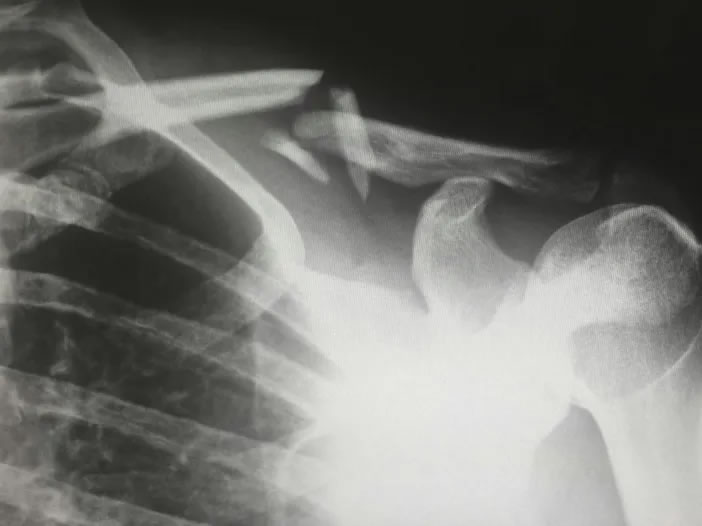If you’ve been injured due to someone else’s negligence, understanding how long you have to file a personal injury claim in Illinois is crucial. Missing these critical deadlines, known as statutes of limitations, can permanently bar you from seeking compensation for your injuries, medical bills, lost wages, and other damages.
While Illinois generally allows two years to file most personal injury claims, the reality is more complex. Different types of injuries have different deadlines, and various factors can either extend or shorten your filing window. Additionally, waiting until the deadline approaches can seriously harm your chances of building a strong case, even if you file within the legal time limit.
In this guide, we’ll break down everything you need to know about personal injury claim deadlines in Illinois:
- The basic Illinois statute of limitations
- Specific time limits by case type
- Important exceptions to the statute of limitations
- Why you shouldn’t wait to file your claim
- Steps to take immediately after an injury
- Common mistakes that can affect your filing timeline
Whether you’re dealing with a car accident, medical malpractice, slip and fall, or other type of injury, understanding these timelines is essential for protecting your legal rights.
The Basic Illinois Statute of Limitations
In Illinois, the general statute of limitations for personal injury cases is two years from the date of the injury. This deadline is established by 735 ILCS 5/13-202 of the Illinois Compiled Statutes. This means that in most cases, you have exactly two years from the date you were injured to file a lawsuit in Illinois’s civil court system.
However, what seems like a straightforward rule can quickly become complex. The “clock” on your two-year deadline typically starts running on the date of your accident or injury, but there are important nuances to understand:
For example, if you were injured in a car accident on March 1, 2024, you would generally have until March 1, 2026, to file your personal injury lawsuit. Missing this deadline by even a single day could result in your case being dismissed, regardless of how strong your evidence might be or how severely you were injured.
It’s crucial to understand that this two-year deadline applies to actually filing your lawsuit in court. Many people mistakenly believe that simply starting insurance claim negotiations or sending a demand letter stops the clock. It doesn’t. Only formally filing your lawsuit in the appropriate Illinois court will satisfy the statute of limitations requirement.
This standard two-year deadline serves several important purposes in our legal system. It:
- Ensures that evidence remains fresh and witnesses’ memories haven’t faded
- Provides a sense of finality for potential defendants
- Encourages prompt resolution of legal disputes
- Helps preserve the integrity of evidence and testimony
Specific Time Limits by Case Type
While the two-year statute of limitations is the general rule in Illinois, different types of personal injury cases may have their own specific deadlines. Understanding these variations is crucial for protecting your legal rights. Here’s a detailed breakdown by case type:
- Car Accidents. For standard auto accidents, the two-year deadline applies. However, if you’re filing a claim for vehicle damage only (without personal injury), you have five years to file your claim. Special considerations apply if the accident involved a government vehicle or employee (which we’ll discuss in detail below).
- Medical Malpractice. Medical malpractice claims in Illinois must generally be filed within two years from when you knew or should have known about the medical error. However, there’s also a strict outer limit – you cannot file a medical malpractice lawsuit more than four years after the actual date of the medical error, regardless of when you discovered it. The only exception is for foreign objects left in the body, which has no outer limit.
- Slip and Fall Accidents. These premises liability cases follow the standard two-year statute of limitations. However, where the fall occurred can affect your deadline. Falls on private property follow the standard two-year rule, but accidents on government property may have much shorter notice requirements—sometimes as brief as one year or even just a few months.
- Product Liability. For injuries caused by dangerous or defective products, you typically have two years from the date of injury to file. However, Illinois also has a “statute of repose” that sets an outer limit of ten years from the date the product was first sold for product liability claims, unless the product was specifically warranted to last longer.
- Wrongful Death. In wrongful death cases, the statute of limitations is two years from the date of death, not the date of the accident that led to the death. This is an important distinction—if someone is injured but doesn’t die until months or even years later, the family’s two-year window for a wrongful death claim starts on the date of death.
- Workers’ Compensation. Workers’ compensation claims have their own distinct timeline. You must notify your employer within 45 days of the accident. For filing the actual claim, you generally have three years from the date of the injury or two years from the last payment of compensation, whichever is later.
Understanding these varying deadlines is essential because they directly impact your ability to seek compensation. A deadline that seems far away can approach quickly while you’re dealing with medical treatments, recovery, and the other challenges that follow a serious injury.
Moreover, insurance companies are aware of these deadlines and may use delay tactics to run out the clock. That’s why it’s crucial to consult with an experienced personal injury attorney as soon as possible after your injury—to ensure your rights are protected and all deadlines are met.
Important Exceptions to the Statute of Limitations
The standard deadlines for filing personal injury claims in Illinois can be extended or “tolled” under certain circumstances. Understanding these exceptions is important, because they might give you more time to file your claim or require you to act even more quickly than the standard deadline would suggest.
The Discovery Rule
Illinois follows the “discovery rule,” which means the statute of limitations may not begin until you discover (or should have reasonably discovered) both your injury and that it was wrongfully caused. This is particularly important in cases where:
- The injury isn’t immediately apparent
- The cause of the injury isn’t obvious
- There’s a delay between the negligent act and when damage becomes apparent
For example, if you develop health issues in 2024 but don’t discover until 2025 that they were caused by exposure to toxic chemicals in 2023, the two-year clock might start running from your 2025 discovery date rather than the 2023 exposure date.
Minors and Incapacitated Individuals
If the injured person is under 18 years old, the statute of limitations typically doesn’t begin until they turn 18. This means a minor generally has until their 20th birthday to file a personal injury claim in Illinois, regardless of when the injury occurred. Similar provisions may apply to individuals who are mentally incapacitated at the time of their injury.
Government Entities as Defendants
Claims against government entities often have much shorter deadlines and additional notice requirements:
- Claims against local governments must typically be filed within one year
- You may need to provide formal notice of your claim within 90 days or less
- Specific paperwork and notification procedures must be followed exactly
- Different deadlines may apply for state versus local government entities
Defendant Leaves the State
If the person or entity responsible for your injury leaves Illinois after the incident but before you can serve them with the lawsuit, the time they’re absent might not count toward your filing deadline. However, this exception is complex and shouldn’t be relied upon without legal counsel.
Why You Shouldn’t Wait to File a Personal Injury Claim in Illinois
While knowing the legal deadlines for filing your personal injury claim in Illinois is important, waiting until the last minute—or even several months—to begin the legal process can seriously damage your case. Here’s why taking prompt action is crucial for maximizing your chances of receiving fair compensation:
Evidence Deteriorates Quickly
Physical evidence is often critical in personal injury cases, but it can disappear or degrade rapidly. Skid marks fade from roads, surveillance footage gets deleted, and property damage gets repaired. The sooner you begin your claim, the better chance your legal team has of preserving and documenting crucial evidence. Even in seemingly straightforward cases, this evidence can make the difference between a successful claim and one that fails due to lack of proof.
Witness Memories Fade
Human memory is surprisingly fragile and begins to fade almost immediately after an incident. Witnesses may forget important details, confuse the sequence of events, or become impossible to locate as time passes. When you start your claim quickly, your attorney can:
- Interview witnesses while their memories are fresh
- Obtain written statements that preserve their testimony
- Secure contact information before witnesses move or change phone numbers
- Document the scene and conditions exactly as they were when your injury occurred
Insurance Companies Gain Advantages from Delays
Insurance companies often use delays to their advantage. The longer you wait to file your claim, the more opportunities they have to:
- Build their defense against your claim
- Question why you waited to seek compensation
- Argue that your injuries might have been caused by something else
- Minimize the apparent impact of your injuries
- Reduce their settlement offers based on the passage of time
7 Steps to Take Immediately After an Injury
If you’ve been injured due to someone else’s negligence, the actions you take in the hours and days following your injury can significantly impact both your recovery and your potential legal claim. Here are the important steps you should take to protect your health and legal rights:
- Get Medical Care Immediately. Don’t wait to seek medical attention, even if your injuries seem minor at first. Some serious conditions—like concussions or internal injuries—may not show obvious symptoms right away, and prompt medical documentation creates an official record linking your injuries to the accident.
- Call the Police or File Official Reports. Make sure your accident is documented by the appropriate authorities. This means calling the police for car accidents, reporting workplace injuries to supervisors, and notifying property owners of slip and fall accidents. Always get copies of these reports for your records!
- Photograph Everything. Take clear photos of your injuries, the accident scene, property damage, and any conditions that contributed to your accident (like broken stairs or traffic signals). These photos can provide crucial evidence later, as conditions often change quickly after an accident.
- Gather Witness Information. Collect names, phone numbers, and email addresses from anyone who witnessed your accident. Witness memories fade quickly, and people can be hard to track down later, so getting their information immediately is crucial.
- Start a Documentation File. Create a folder (physical or digital) to store all accident-related documents, including medical bills, receipts, incident reports, and insurance correspondence. Also start keeping a daily journal documenting your pain levels and how the injury affects your daily activities.
- Avoid Social Media. Stay off social media and don’t post anything about your accident or injuries! Insurance companies routinely monitor social media accounts, and even innocent posts about your activities or recovery can be used to undermine your claim.
- Don’t Give Statements to Insurance Companies. Decline to give recorded statements to insurance companies until you’ve consulted with an attorney. Insurance adjusters are trained to ask questions in ways that might harm your claim, even if you’re telling the truth.
Taking these steps immediately after your injury helps build a strong foundation for your legal claim. Remember, while the statute of limitations in Illinois gives you time to file your claim, the evidence needed to prove your case is often most accessible immediately after the accident. The sooner you act, the better positioned you’ll be to receive fair compensation for your injuries.
3 Common Mistakes That Can Affect Your Filing Timeline
Many injured people inadvertently damage their personal injury claims through common errors that can affect their filing timeline—or even invalidate their claim entirely. Understanding these pitfalls can help you avoid them and protect your right to compensation.
1. Putting Off Medical Treatment
One of the most damaging mistakes is delaying or discontinuing medical care. Insurance companies often interpret gaps in treatment as evidence that your injuries aren’t serious. If you wait weeks to see a doctor or skip follow-up appointments, the defense can argue that something else caused your injuries or that you made them worse by not seeking proper care. Always follow your doctor’s treatment plan consistently and keep all medical appointments.
2. Assuming You Have Plenty of Time
The two-year statute of limitations might seem like a long time, but building a strong personal injury case takes considerable preparation. Vital evidence can disappear, witnesses can move away, and memories can fade. Additionally, some cases require extensive investigation or expert testimony that can take months to arrange. Waiting too long to start the process can leave your attorney with insufficient time to build the strongest possible case.
3. Handling Insurance Companies Without Legal Representation
Many people damage their claims by trying to negotiate with insurance companies on their own. Insurance adjusters often contact injury victims quickly, appearing helpful while actually looking for ways to minimize or deny claims. They might:
- Pressure you to give statements before you understand the full extent of your injuries
- Offer quick settlements before you know the long-term impact of your injuries
- Ask you to sign medical releases that give them access to your entire medical history
- Use your own words against you to reduce their liability
Remember, the insurance company’s goal is to pay as little as possible for your claim. Every statement you make and document you sign can affect your ability to recover fair compensation.
Call Cullotta Bravo Law Group to File a Personal Injury Claim in Illinois
If you’ve been injured in Illinois due to someone else’s negligence, understanding and adhering to legal filing deadlines is crucial for protecting your right to compensation. While the standard two-year statute of limitations provides a general framework, a variety of factors can extend or shorten this timeline depending on your specific situation.
The most important takeaway is that you shouldn’t wait to take action. Even though you may have months or years before the legal deadline expires, building a strong case takes time, and evidence tends to become harder to obtain as time passes. Working with an experienced personal injury attorney early in the process helps ensure that all deadlines are met and your rights are protected.
At Cullotta Bravo Law Group, we’ve spent over 30 years helping injured Illinois residents navigate the complexities of personal injury claims. If you’ve been injured, don’t risk losing your right to compensation by waiting too long to act. Contact us today for a free consultation and we’ll help you understand exactly how the statute of limitations applies to your personal injury claim in Illinois.
Filed Under: Injury Law


















